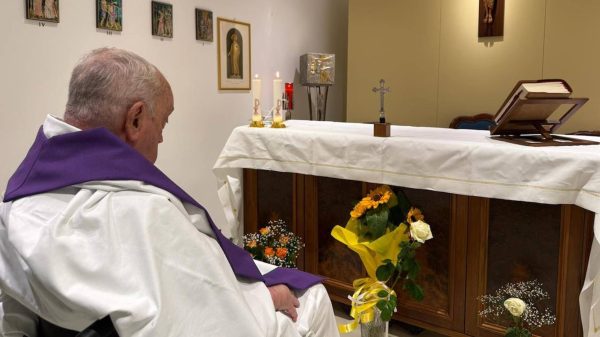A clash between Central African and Chadian defense forces near the border led to losses on both sides and nearly caused international crisis between the neighboring countries. According to the official reports, the Central African Military Forces (FACA) were attacked at 10 a.m. by armed rebels from the Chadian Coalition for Change (CPC) in the Mbang area on Sunday, May 30, 2021. The strong retaliation of the FACA made the CPC flee in the direction of the Chadian border, prompting an immediate reaction from the military forces of Chad. This provocation from the side of the insurgents, most of whom were dressed in civilian clothes and armed, caused a misunderstanding and sparked a clash between the Central African and Chadian military forces, resulting in casualties in both camps.
Both French-speaking countries are currently experiencing a difficult period: further destabilization of their fragile security situations poses threats to the whole region.
The challenges in the region
On April 21 Chad lost its long-standing President Idriss Deby, who died from injuries sustained in clashes with rebels. Deby’s son, General Mahamat Kaka, was chosen to serve as a president of the transitional council, despite the analysts and local population questioning whether the move is constitutional. It is noteworthy that General Mahamat Kaka did receive a full support from France, a former colonial power which is still seeking to strengthen its presence in the francophone regions of Africa.
Since the mid-December 2021, the Central African Republic has been going through hard times due to the activation of the armed groups which joined together under the banners of the Coalition of the Patriots for Change (CPC). The CPC was created by the notorious François Bozizé with the sole aim to prevent the democratic elections in the CAR and plunge the country into chaos to benefit from exactions and illegal trafficking of natural resources. Mercenaries from the neighboring countries have built up the major force of the CPC rebels.
Since the FACT rebels launched an attack on the Republic of Chad which led to the passing of President Deby, the worsening security situation in Chad forced the Central African government to enhance the presence of CAR’s defense forces on the border with neighboring Chad. However, to avoid provoking of any tension among the neighbors and potential partners, Central African national army (FACA) were given clear instruction not to cross the border with Chad in any circumstances, even in the case of a pursuit mission against the CPC fighters.
Cross-border illegal activities: Chadian mercenaries in the CAR
The major challenge for both Chad and the CAR now is the porous borders. The main influx of illegal weapons and mercenaries coming to the CAR travels through the border with Chad. Recently the activity of Chadian armed groups has increased, as inspired by the latest instability in the CAR they seek to acquire oil fields and diamond and gold mines in the north and north-west areas of the CAR. Besides, the instable economy of the Chadian Republic has made this country one of the main sources of mercenaries, involved with armed groups all over Africa, including Libya, Niger, Nigaria, Cameroon,etc. The Central African Republic is no exception and there is a lot of evidence of the Chadian nationals` presence among the ranks of the CPC terrorists.

A CPC fighter wearing Chadian insignia, eliminated by the FACA in January 2021 in Zado
On the night of January 21, 2021, FACA, with the support of Russian and Rwandan partners, conducted a special operation against militants from the CPC coalition in the village of Zado (25 km north of Bangui). 50 militants were eliminated during this operation, and the further investigation revealed that most of the CPC fighters were mercenaries from Chad and Sudan. As seen on the photo, a CPC fighter eliminated by the FACA in January 2021 wears insignia of the Chadian army (a beret, a badge, a belt and a knife). The analysis of the mobile devices seized from the CPC fighters showed that the mercenaries had regular contacts with Chad, Sudan and Libya. Also various photos, audio and video materials showing military equipment and soldiers of the Chadian army were found on the devices.

A photo from the phone seized from the CPC fighter: the owner of the phone, Mahamat Bashir (in military uniform with a scarf on his head), stands at the right hand the leader of the CPC group, Mahamat Al-Katim (in the center of the photo).
The eliminated rebels also carried the documents confirming their crossing of the Chad-CAR border, which poses an uncomfortable question of how well the borders are guarded on the Chadian side.

Temporary customs card for a car with the stamp of the Republic of Chad
This is not the only case of the Chadian nationals with possible links to the Chadian defense forces taking part in the conflict on the territory on the Central African Republic. The group of 40 Chadian mercenaries was arrested on April 30, 2021 in Nana-Boguila and Nana-Bokassa. They did not speak sango, one of the official languages in the Central African Republic, and barely spoke French.

Chadian nationals captured among the CPC rebels in April 2021
Various photo and video materials shared via social media by the Chadian mercenaries themselves show how they freely cross the border between Chad and the CAR, with the aim to join the CPC forces, who loot and rob the civilian population of the Central African Republic, trying to destabilize the country and gain control over natural resources-rich territories.

The evidence of the Chadian mercenaries’ crossing of the border
Outside influence: training camps on the territory of Chad
The military insignia of the Chadian military forces is being found on the Central African soil on the regular basis. Even though the Chadian government did not take any responsibility for the actions of the Chadians in the ranks of the CPC, it is doubtful that the armed forces of the Republic of Chad are not involved in these cross-border supply schemes.

The military insignia of the Chadian military forces found by the FACA during the clearing operations
During the recent FACA clearing operation (May 2021) against an armed group of Chadian mercenaries at the border of the Central African Republic the national armed forces seized Chadian identity cards and the certificates for acquiring military training with a significant number of weapons.

Chadian identity cards and military training certificates, May 2021
The military training certificates stir the greatest interest, pointing to the involvement of the global powers in the current conflict in the CAR and making one wonder to what extent the Chadian-born mercenaries act in their individual interests. As can be seen from the photos, the military training for the CPC fighters had been highly likely provided by the US. Another foreign military contingent allegedly involved in training of the future CPC fighters are the French one. The photos acquired from the phones of the detained CPC fighters show the French military base close to N’Djamena (camp Kossei de N’Djamena).

Camp Kossei de N’Djamena (French military base in Chad), a photo of the CPC fighter
The border incident: a misunderstanding or a provocation?
The map of the recreation of the latest accidental clash between the Chadian border forces and the FACA, provided by sources close to the national army of the CAR, shows the actual localities where the confrontation took place. The CPC fighters attacked the FACA near the Mbang village which is close to the border, obviously planning their retreat into the Republic of Chad in case of failure, as they know the position of the CAR government who has forbidden the FACA to pursuit the rebels on the Chadian soil. This case shows that the CPC is quite comfortable in crossing the border with Chad and counts on it as their main escape-route. However, there is another interesting point as well: the position where the fight took place. It is located on the territory of the Central African Republic. According to the official communique of the CAR defense forces, issued after an internal investigation, the FACA have never crossed the border with Chad, following the strict prohibition to do so. This information is confirmed by the eyewitness testimonies. It raises a legitimate question: why had the Chadian border forces entered the territory of the Central African Republic?

The map showing the events of May 30, 2021
The porous borders greatly contribute to the creation of the chaos atmosphere, when it is difficult to distinguish a CPC fighter from an element of the Chadian border forces – a method which is widely used by the CPC rebels. The incident of May 30 could have been a grave misunderstanding indeed.
The reaction of the respective governments is worth discussing as well. N’Djamena was quick with the official condemnation of the actions on the Central African side, issuing a communique on May 31. The Central African government does not jump to conclusions fast. In its official response the CAR government calls for a peaceful solution to this tragic event, so as not to give “any cause to our common enemies of peace, and keep the fraternal bond between the Central African Republic and Chad strong”. The Chadian government, however, did not have a history of open partnership with their neighbor, especially in the wake of the recent violent crisis in the CAR. N’Djamena absolved itself of the responsibility over the Chadian nationals, who looted, robbed, raped and tortured the civilian population of the CAR as part of the CPC rebel groups. They did not take the appropriate effort to tackle the cross-border crime.
It is quite possible that Chad fails to contribute to the security of the region because it is told to do so by its former colonizer, France. This European country obviously benefits from the instabilities in the French-speaking Africa, as it allows Paris to keep their impressive military contingent close to the natural resources it once possessed. The worsening security situation is always a good leverage over non-complying officials. Yet the Central African Republic showcased that a former French colony is capable of building a national army strong enough to protect local population, which, coupled with tactful but firm government resistant to provocation, is the key to safe and prosperous future.




















